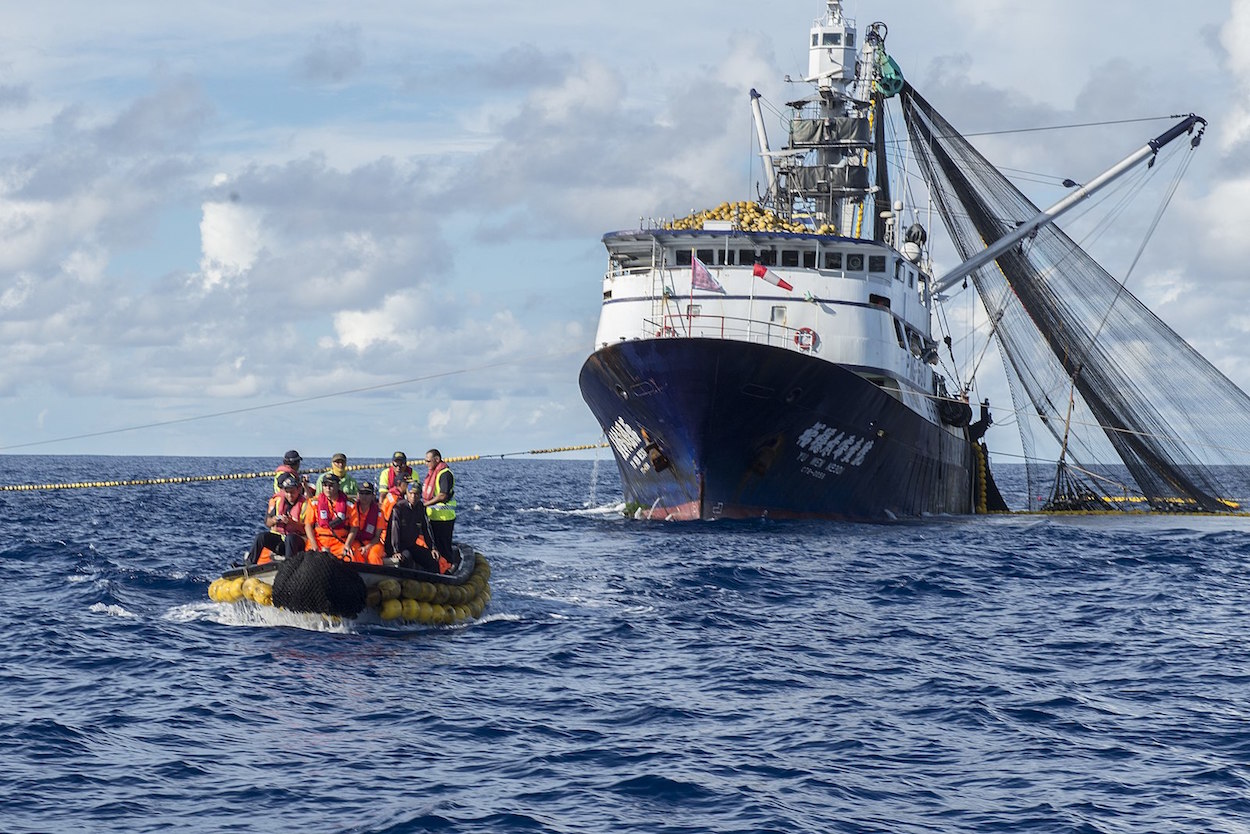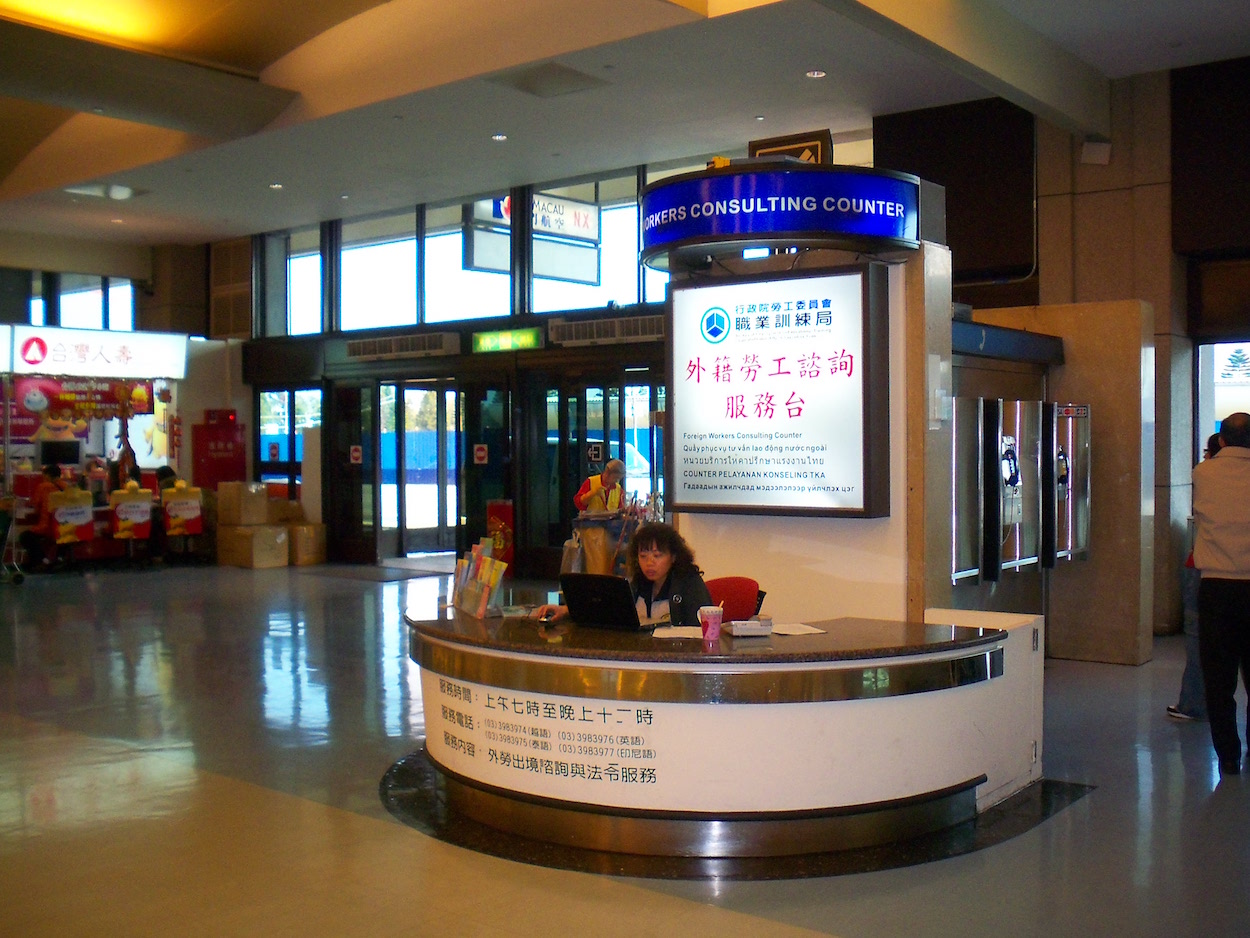by Jay Chen
語言:
English
Photo Credit: Tbatb/WikiCommons/CC
TWO RECENT INCIDENTS highlight the dangers facing migrant workers in Taiwan, pointing to lax legal regulation and how that has resulted in dangerous and inhumane working conditions for migrant workers.
The first incident in question took place in 2012 on the Ping Shin No. 101, a deep-sea fishing vessel registered to Kaohsiung, but only led to a sentencing last month. A Chinese captain working onboard the vessel was found guilty of murder after video footage was found of him ordering two Pakistani crew members to open fire on four Somali men that he believed to be pirates.
 Photo credit: Xiaoyang 2018/WikiCommons/CC
Photo credit: Xiaoyang 2018/WikiCommons/CC
The four men were fired upon and killed after the boat rammed their vessel, overturning it, while floating in the water. The incident only came to light after the phone in which video of the incident was recorded was apparently lost in a taxi cab, resulting in someone finding it and posting the footage online in 2014.
The Chinese captain in question, Wang Fengyu, has been sentenced to 26 years in prison. It is not unusual for Chinese nationals to serve as crew members or captains of Taiwanese-owned fishing vessels.
More generally, the incident points to the dangerous conditions that exist on the high seas for deep-sea fishermen, who are almost always migrant workers from southeast Asia. The high seas are often considered somewhat lawless, in which violence from captains against crew members is routine. Crew members have little ability to lodge complaints because of lacking access to the Internet or cell phone signal at sea. Likewise, vessels may only return to shore once every few years.
Working conditions for migrant fishermen have been accused of being a form of modern slavery by international NGOs such as Greenpeace. To this extent, there have been past incidents in which fishermen died at sea, likely killed by their captains, and their bodies were disposed of at sea.
The second incident took place among factory workers, another major category of migrant workers in Taiwan, alongside factory workers, and domestic caregivers. Domestic caregivers are sometimes known to transfer work to become factory workers, something that takes place if domestic caregivers leave their original place of employment if they suffer abuse. Abuse may include sexual harassment or assault, other forms of violence, or simply being forced to work around the clock with no breaks, as Taiwanese employers sometimes force the migrant workers they employ to do.
As reported by migrant worker advocate Lennon Ying-dah Wong, the director of the Serve the People Association’s Taoyuan-based shelter, the National Federation of Employment Service Association (NFESA) recently wrote the Central Epidemic Command Center (CECC) that coordinates Taiwan’s response to COVID-19 requesting that the CECC void the ability of migrant workers to shift employment.
The NFESA claimed that this was a necessary measure during the COVID-19 pandemic. However, in reality, the NFESA likely simply wished to use the COVID-19 pandemic as a pretext to weaken the ability to change workplaces, making it easier for employers to control their workers if they have no course of escape.
 Counseling counter for migrant workers in Taoyuan International Airport. Photo credit: 玄史生/WikiCommons/CC
Counseling counter for migrant workers in Taoyuan International Airport. Photo credit: 玄史生/WikiCommons/CC
According to Wong, the NFESA has taken advantage of the inability of many migrant workers to read Chinese by distributing Chinese-language letters that it claims states that migrant workers are no longer allowed to change employers. This is not the case, however, seeing as the CECC has denied the request by the NFESA, citing that this would be illegal. Nevertheless, it is likely that the NFESA may try to take its case to the Ministry of Labor, though the Ministry of Labor would possibly face scandal if it did, in fact, void this provision.
Though not directly related, both cases point to the dire outlook for migrant workers in Taiwan. Migrant workers often face employers hoping to establish working conditions in which they have complete control of workers, without allowing them time off, without being allowed to travel as they see fit, or to transfer work. Nevertheless, there often is little political willpower to make changes to benefit migrant workers, except where this affects Taiwan’s international reputation. Migrant workers, after all, cannot vote, and so it proves difficult to motivate politicians to take action on their behalf, rather than stand on the side of their Taiwanese employers.

